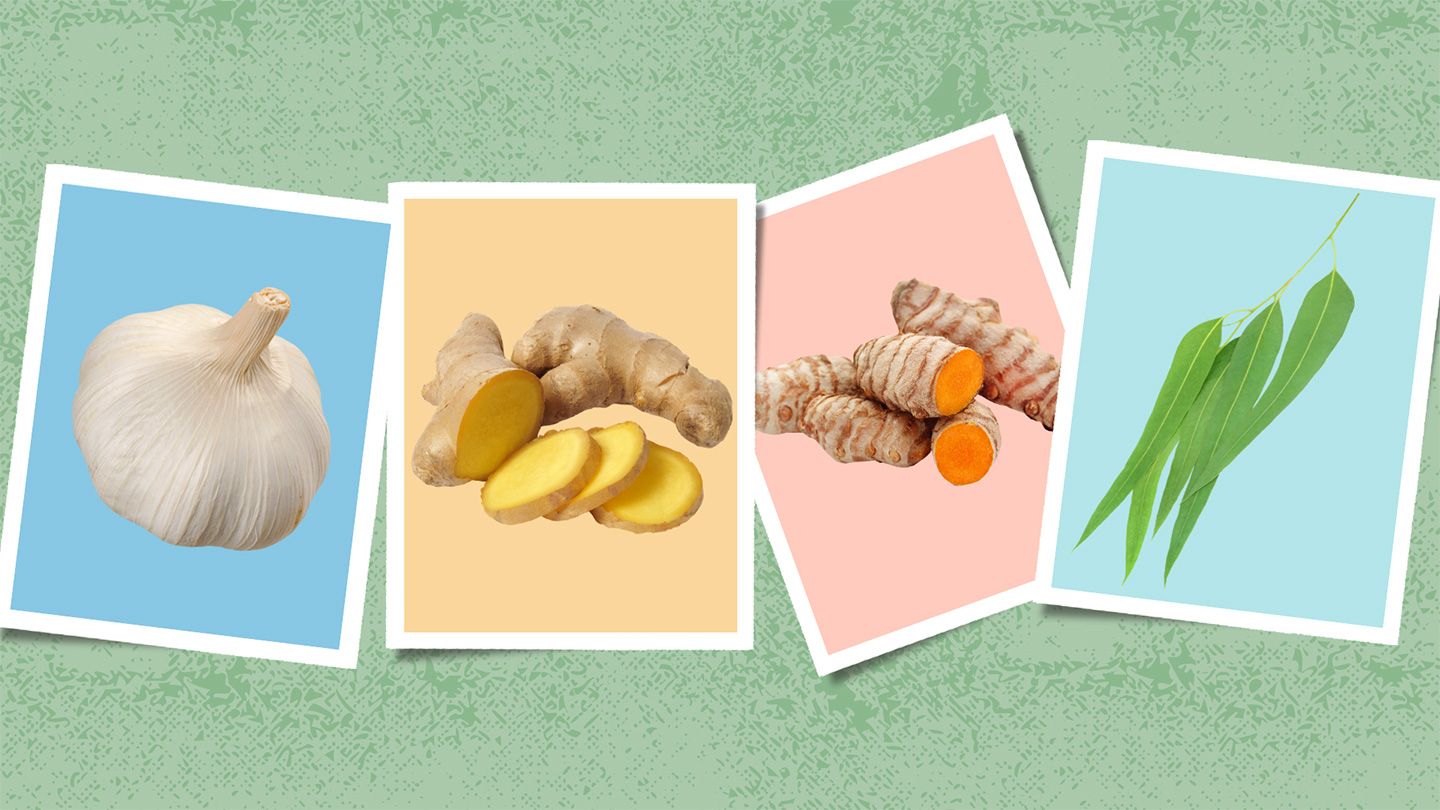Natural asthma support remedies often incorporate ginger, turmeric, garlic, or eucalyptus. “While some herbs might offer extra support, they can’t control asthma or help during a flare-up and should never replace your regular medications,” says Raj Dasgupta, MD, a board-certified pulmonologist based in Los Angeles. “Asthma is serious, so always follow your doctor’s treatment plan.” If you are interested in using herbs this way, discuss it with your healthcare provider first. The following herbs have properties that may ease certain asthma symptoms.
Ginger
Researchers have studied ginger and asthma because of the spice’s anti-inflammatory effects and potential to relax the airway smooth muscle (ASM), which may help prevent airway constriction, Ring says. “It can be taken as a tea, added to meals, or taken as a supplement (typically 1–2 grams [g] daily),” she says.
In a small case-control study of 50 people, 25 of whom had allergic asthma, researchers found ginger extract helped control asthma and reduce symptom severity.
An older study found fresh ginger reduced plaque formation in the airway caused by HRSV, a respiratory virus, Luk notes. “While this study was not aimed at asthma therapy, it did show promise in how fresh ginger can help protect cells in the airway from viral infection,” she says.
Turmeric
Turmeric benefits for asthma stem from the spice’s anti-inflammatory properties, thanks to its active compound curcumin.
Pure curcumin extract, which comes in supplement form, can contain up to 95 percent curcuminoids, whereas turmeric usually has 6 or 7 percent.
“For asthma, turmeric is thought to help by reducing inflammation in the airways,” Dr. Dasgupta says. “Use it in cooking or take 500 to 1,000 mg daily as a supplement, but proceed with caution if you’re on other anti-inflammatory drugs.”
One randomized, double-blind, placebo-controlled study suggested children and adolescents with asthma may benefit from a 30 mg dose of turmeric per kilogram of body weight for six months or more, Luk says. “The subjects in this study experienced fewer overnight awakenings and used asthma puffers less often,” she adds.
It’s important not to take doses exceeding 8 g and to avoid it if you’re taking certain medications, such as blood thinners, as it may increase the risk of adverse side effects or complications.
Garlic
“Garlic is known for its immune-modulating, antioxidant, and anti-inflammatory properties, which may help support respiratory health,” Ring says, noting that it can be used in cooking or taken as a supplement.
Several studies in mice on the use of garlic for asthma relief have shown promise, suggesting that it reduced inflammation and prevented the airways from narrowing. But Luk says there’s not yet conclusive evidence of its effects on humans, nor is there a standardized dosage recommendation. That said, most research supports consuming one or two garlic cloves daily — or the equivalent in supplement form, Ring says, adding that supplements are typically available in doses ranging from 600–1,200 mg daily.
Eucalyptus
Some research on eucalyptus for breathing suggests it may alleviate asthma symptoms by reducing inflammation, breaking down mucus, and widening airways, Ring says. But results are mixed, and other studies indicate it may worsen symptoms.
“Eucalyptus can help open airways when used in steam inhalation,” Dasgupta says. Some people also use eucalyptus-based rubs on the chest, Ring adds, noting that whatever the form, it’s crucial to ensure it’s well-diluted. “The key is to use it sparingly, as overuse or undiluted oils can cause irritation or worsen symptoms for some people,” Ring says.
Small amounts of eucalyptus, commonly used in over-the-counter cold and cold products, may be safe. But Luk stresses that pure eucalyptus oil is toxic and should never be ingested. “Mild symptoms, including nausea, vomiting, and diarrhea, can occur even with small doses,” she says. “Taking 3.5 mL, which is just over half a teaspoon, of pure oil can be fatal.”




